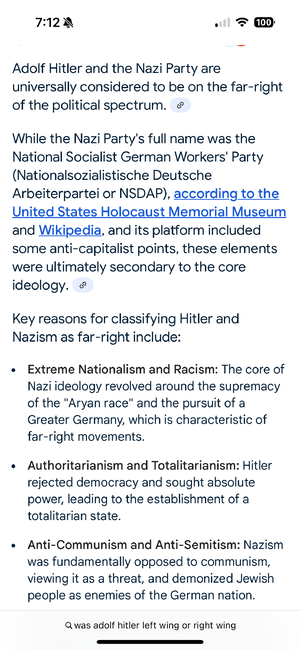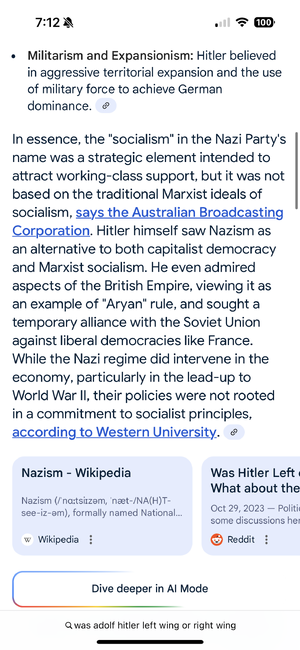- Messages
- 2,396
If you call yourself or your party SOCIALIST in the name of the party then I tend to believe it. Democratic Socialist = Mamdani. Great Leap Forward and Cultural Revolution = Mao. Year Zero = Pol Pot. Homeland or Death = Castro“believe that Adolf Hitler was a virulent left winger because his party was called the National Socialist German Worker’s Party,”
No way!!!
Listen to what leftist call themselves.




